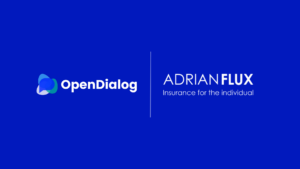No code platforms are revolutionizing the way we build applications, enabling anyone to create software without the need for coding knowledge. With the rise of these platforms, companies in various industries are turning towards them to reduce development time, improve efficiency, and drive innovation.
The insurance sector is one such industry that has begun to embrace no code platforms, with many insurers leveraging them to build new applications for customer portals, claim management systems, fraud alerts, and to also automate their legacy processes. All of this without the traditional heavy lifting by software developers. This means that business users can now design, develop and deploy their own applications, allowing them to focus on their core business competencies without having to worry about technical details.
However, no code platforms alone cannot solve all the problems faced by insurers, nor fully unlock the benefits associated with transforming customer experience.
It’s a continual challenge for many insurers to provide effective customer support due to the high volume of calls they receive. Conversational AI provides a solution to this problem.
Conversational AI is a technology that enables machines to hold conversations with humans. By leveraging Conversational AI, insurers can develop virtual agents that can handle customer queries, provide product information, and even process claims.
Conversational AI has already been deployed in the insurance industry with promising results. For instance, Geico, a leading auto insurer in the US, has implemented a chatbot that can answer customer queries in real-time. Similarly, Lemonade, a digital insurance startup, uses a chatbot to process claims and provide customer support.
The true potential however of Conversational AI in the insurance industry, lies in its ability to be combined with no code platforms. By combining these two technologies, insurers can create virtual agents that can handle complex insurance use cases, whilst still be engaging with the user – supporting them in the channel which best suits their needs. For instance, a virtual agent can assist customers in selecting the right insurance policy, help with the claims process, and even provide personalized insurance advice – all delivered as a sophisticated and personalized conversational interaction.
The benefits of no code Conversational AI platforms are numerous, with those leading the way still only scratching the surface of what’s possible.
Looking forward, the future of the insurance industry is heavily dependent on technology. Insurers that fail to adapt to these changes risk losing market share to more tech-savvy competitors. However, those that embrace the marriage of no code and Conversational AI will be well-positioned to drive innovation, improve efficiency, and provide superior customer experiences.



